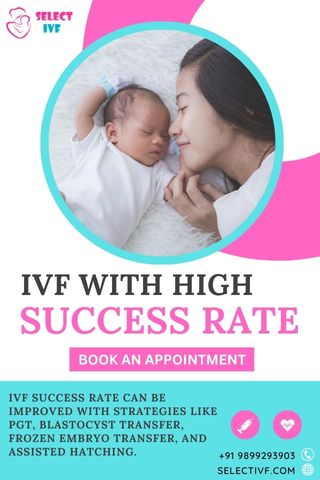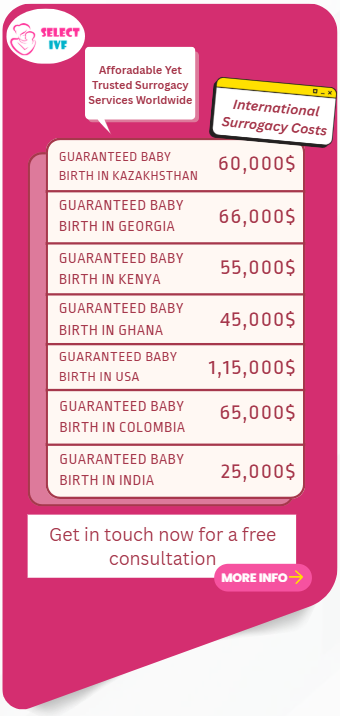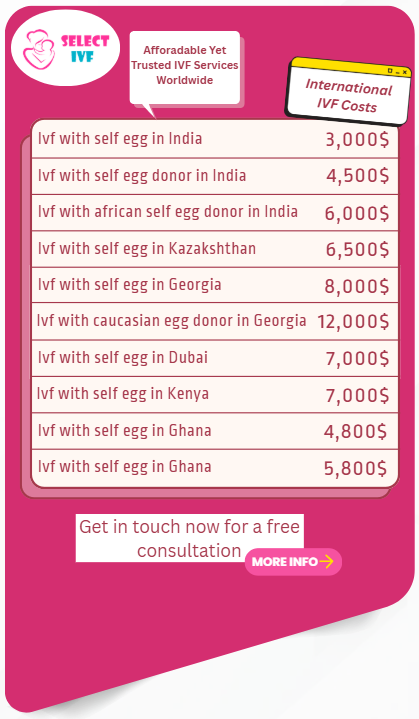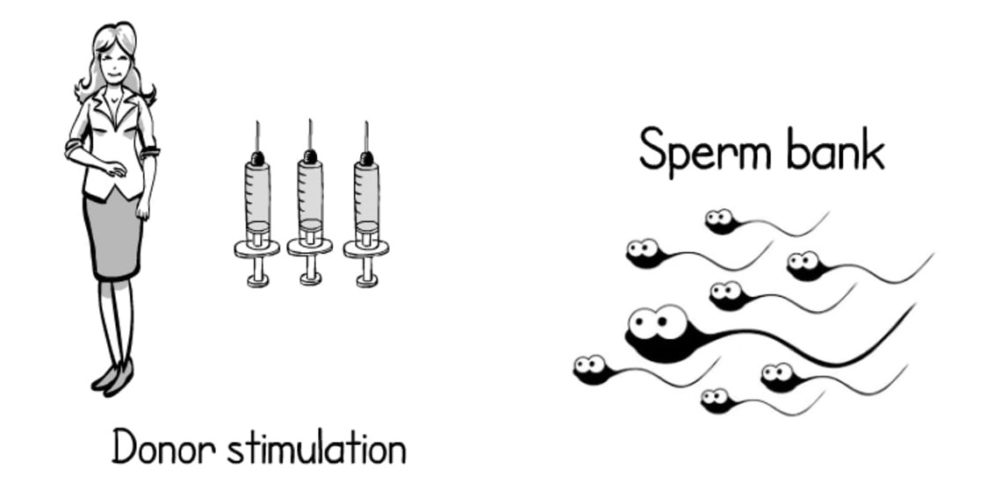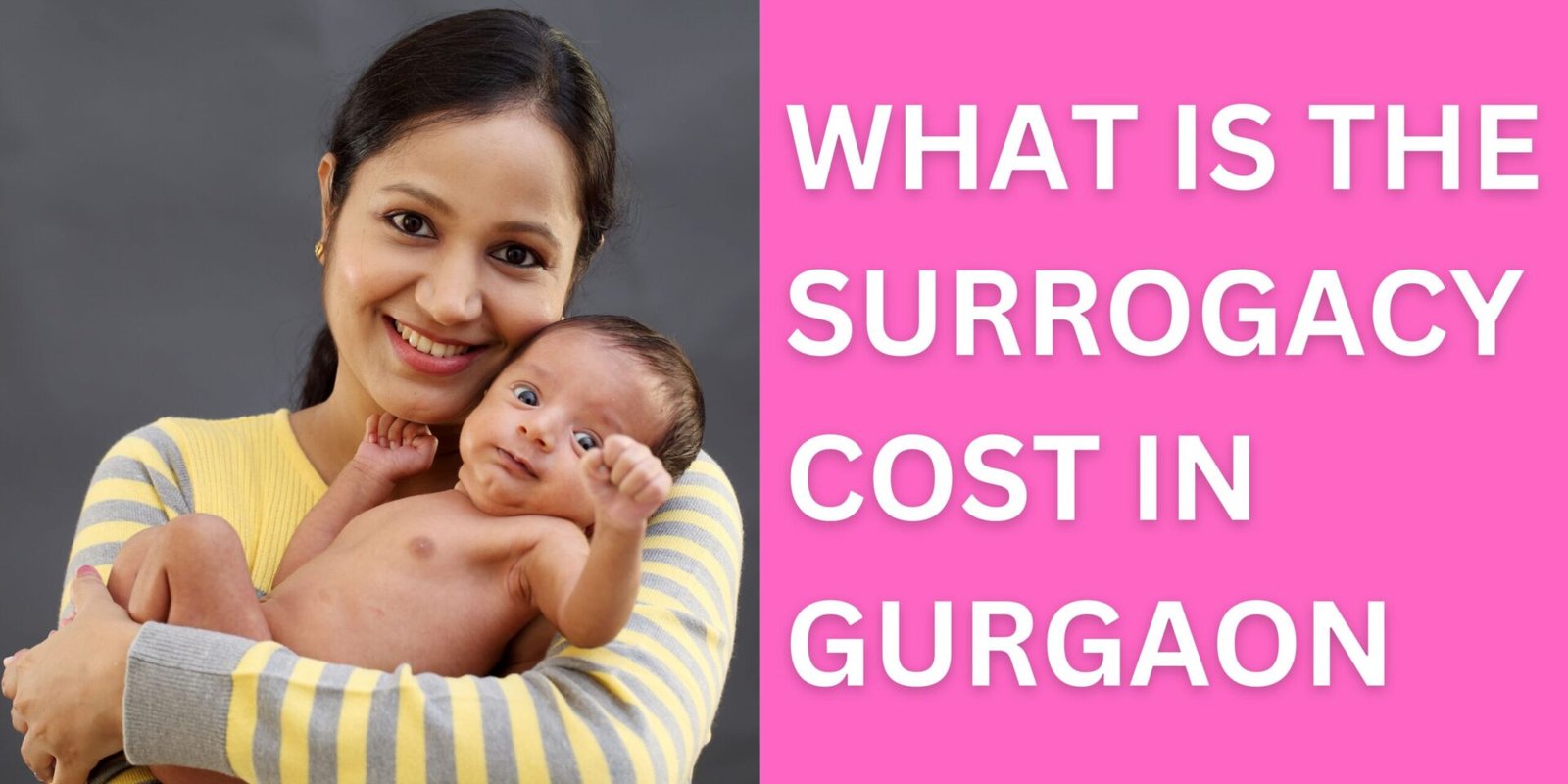The journey of In-Vitro Fertilization (IVF) is filled with hope, courage, and a series of carefully planned medical steps. Among these, IVF injections play a central role. For many individuals and couples facing infertility, these injections are not just a part of treatment; they are the beginning of a dream to build a family.
IVF injections are used to prepare a woman’s body for retrieving multiple mature eggs, creating healthy embryos, and supporting a successful pregnancy. These injections involve different types of hormones that help stimulate the ovaries, control ovulation timing, and prepare the uterus for embryo implantation. While these medications are medically essential, they can also be emotionally overwhelming, especially for first-time IVF patients who may feel anxious about needles, side effects, or the body’s response.
It’s normal to feel confused at first. Questions often arise: “Do the injections hurt?” “Will I gain weight?” “Are there risks involved?” These are valid concerns. IVF injections can cause side effects such as mood swings, bloating, soreness at the injection site, or fatigue. In rare cases, they may lead to more serious complications like Ovarian Hyperstimulation Syndrome (OHSS). Understanding what’s normal and what’s not can help reduce fear and give patients a sense of control.
The good news? Most side effects are manageable, and many patients go through IVF cycles safely and successfully. With the guidance of a fertility specialist and proper monitoring, the process becomes more comfortable than many expect.
This article aims to provide a complete, easy-to-understand guide to IVF injections and their side effects. Whether you’re just beginning your IVF journey or are already mid-cycle, this information is here to help you feel more confident, informed, and supported.
Let’s walk through each step, what IVF Injections & Their Side Effects are, the different types, how they work in your body, the side effects to watch for, and tips to handle them with care.
Why should you trust SELECT IVF for IVF Injections & Their Side Effects?
- First-stage top counseling sessions
- Premium services and processes
- Highly competent specialists for IVF Injections & Their Side Effects
- Sky-high IVF success rates in Hyderabad
- Contact us Email ID: info@selectivf.com
- Call us: +91- 9899293903
What Are IVF Injections?
IVF injections are special medications given as injections under the skin or into the muscle to help a woman’s body prepare for an IVF cycle. They are a key part of the treatment and are used to stimulate the ovaries to produce multiple mature eggs instead of the single egg the body naturally releases each month.
These injections contain hormones that help control and support ovulation, egg development, and hormone levels during the IVF process. Since IVF relies on retrieving multiple healthy eggs to increase the chances of success, injections help make that possible in a safe and controlled way.
There are different types of IVF injections, and each one plays a specific role in your body:
- Some help grow more eggs.
- Some stop premature ovulation.
- Some help release the eggs at the right time.
- Others prepare the uterus for embryo transfer.
In a typical IVF cycle, a woman may need to take multiple injections daily for 8 to 14 days, depending on how her body responds. While that may sound overwhelming, many women adjust quickly and are able to administer them at home, often with the help of a partner or nurse.
These injections are usually given in the abdomen or thigh using a small, fine needle. Most people find the discomfort to be minimal, and fertility nurses provide full training on how to handle the medication and the injections safely.
It’s important to remember that while IVF injections are medical tools, they are also emotional milestones. Each shot is a step closer to pregnancy and a baby. Understanding why you’re taking them and how they work makes the journey feel more empowering and less intimidating.
Types of IVF Injections Used During the IVF Process
IVF injections are not just “one type of medicine.” In fact, there are multiple kinds of injections, each with its own role and timing. Depending on your IVF protocol, your fertility doctor will design a plan using a mix of these injections to support egg growth, prevent premature ovulation, and prepare the body for embryo transfer.
Let’s understand the main types of IVF injections you may encounter during your fertility journey.
1. Ovarian Stimulation Injections (FSH or HMG Injections)
These are the first set of injections you take at the beginning of the IVF cycle. Their goal is to stimulate your ovaries to produce multiple mature eggs, rather than the one egg your body would normally release during a natural cycle.
Common medications in this group:
- Follistim
- Gonal-F
- Menopur
- Bravelle
These injections contain Follicle-Stimulating Hormone (FSH) or a combination of FSH and Luteinizing Hormone (LH). You usually take them once or twice daily for 8 to 12 days, depending on how your ovaries respond.
How they work:
They “wake up” the ovaries and encourage the growth of several egg follicles at the same time. Regular monitoring with ultrasound and blood tests helps the doctor adjust your dose for the best results.
2. Ovulation Suppression Injections (GnRH Agonists or Antagonists)
While stimulating the ovaries, it’s also important to prevent premature ovulation, which could cause the eggs to be released too early and ruin the IVF cycle.
Two types of medicines do this:
- GnRH Antagonists:
- Examples: Cetrotide, Ganirelix
- These are started mid-way through stimulation and work quickly to block ovulation.
- GnRH Agonists:
- Examples: Lupron
- Sometimes used in “long protocols,” they first increase hormone levels, then suppress them.
How they work:
These medications temporarily “turn off” your brain’s natural signals to ovulate. This allows your doctor to fully control when ovulation happens.
3. Trigger Shot (hCG or Lupron Trigger)
Once your egg follicles have grown to the desired size, it’s time to “trigger” final maturation of the eggs. This is done using a trigger shot, usually given 36 hours before egg retrieval.
Common trigger medications:
- Ovidrel (hCG)
- Pregnyl or Novarel (hCG-based)
- Lupron (used in special cases, especially when there’s a risk of OHSS)
How it works:
The trigger shot mimics the body’s natural surge of Luteinizing Hormone (LH), telling the ovaries it’s time to mature the eggs and prepare them for retrieval. The timing of this shot is very critical and must be taken exactly as instructed.
4. Progesterone Injections (Luteal Phase Support)
After egg retrieval, and especially after embryo transfer, your body needs support to help the uterus prepare for pregnancy. Progesterone is the hormone that thickens the uterine lining and supports embryo implantation.
Common forms:
- Progesterone in oil (PIO): Intramuscular injection in the hip
- Crinone gel or Endometrin: Vaginal options
How it works:
Progesterone prepares the uterus for a baby. If pregnancy occurs, your body continues to produce progesterone naturally. If not, the injections are stopped once a pregnancy test confirms the result.
5. Optional Add-On Injections or Medications
Depending on your medical condition or history, your fertility doctor may add other injections such as:
- Low-dose HCG (microdoses) – to improve egg quality
- Dexamethasone or Prednisolone – steroids to suppress the immune response
- Blood thinners (like Lovenox) – in cases with clotting risk
These aren’t routine but are sometimes used for specific needs.

How IVF Injections Work in the Body?
IVF injections may look like just a series of small shots, but behind those needles is a carefully timed hormonal process that transforms the body to prepare for pregnancy. Understanding how these injections work inside the body will help you feel more confident and less anxious throughout your IVF cycle.
Let’s break it down step by step.
1. Stimulating the Ovaries to Grow Multiple Eggs
In a natural menstrual cycle, your body produces just one egg each month. But in IVF, the goal is to retrieve multiple eggs to increase your chances of creating healthy embryos.
Here’s what happens: The first set of IVF injections (FSH or HMG) contains hormones that signal the ovaries to grow more egg follicles than usual. Instead of just one, your ovaries start developing many small sacs (follicles), each potentially holding an egg.
The fertility doctor carefully watches this process through:
- Ultrasound scans are used to check how many follicles are growing.
- Blood tests to measure hormone levels.
Your injection dosage might be adjusted during this time, depending on how your body is responding.
2. Suppressing Natural Ovulation
While the eggs are growing, your body might try to release them early, which could ruin the IVF cycle. That’s why you take injections called GnRH agonists or antagonists.
These medicines temporarily “turn off” the brain’s natural command to ovulate. This allows your doctor to fully control the timing of egg retrieval so no eggs are lost.
You’ll usually start these medications a few days after stimulation begins and continue until the final trigger shot.
3. Triggering Final Egg Maturation
Once the eggs are mature and ready to be collected, you’ll receive the “trigger shot.” This injection acts like a natural Luteinizing Hormone (LH) surge in the body, which tells your ovaries, “It’s time.”
This shot does two things:
- It completes the final step of egg maturation
- It ensures the eggs are ready for retrieval in exactly 36 hours
The timing of the trigger is very important. The egg retrieval procedure is scheduled precisely based on when you take this shot.
4. Supporting the Body After Egg Retrieval
After the eggs are collected, your hormone levels drop because your body no longer has the follicles producing estrogen and progesterone. That’s why you begin progesterone support, either through injections, gels, or vaginal tablets.
Progesterone:
- Thickens the uterine lining
- Makes the uterus “receptive” to embryo implantation
- Supports early pregnancy until the placenta takes over
You usually continue progesterone for 10–14 days after the embryo transfer. If the pregnancy test is positive, you may continue it for several more weeks as advised by your doctor.
Your Body Is Carefully Guided
In short, IVF injections guide your body step by step:
- Grow more eggs than usual
- Prevent early ovulation
- Mature the eggs at the perfect time
- Support your uterus for pregnancy
Each injection is like a signal to your reproductive system, helping the doctors and your body work together in perfect timing. Although it can seem like a lot, everything is coordinated with careful monitoring, so you’re always in safe hands.
Common Side Effects of IVF Injections
While IVF injections are essential to a successful fertility treatment, they often come with side effects, some mild, some a bit uncomfortable, but usually temporary and manageable. Since these injections involve hormonal medications, your body may respond in various ways as it adjusts to the changing hormone levels.
Not every woman experiences side effects, and those who do might experience them differently. The key is to be aware of what’s normal and what can be expected, so you don’t feel alarmed.
Let’s go over the most common side effects of IVF injections and what you can do about them.
1. Bloating and Abdominal Discomfort
One of the most common complaints during ovarian stimulation is a feeling of fullness, heaviness, or bloating in the lower belly. This happens because the ovaries are growing rapidly and producing multiple follicles.
You may notice:
- A tight or swollen abdomen
- Mild cramps or pressure
- Discomfort when bending or sleeping
This is normal and usually gets better after egg retrieval. Staying hydrated, eating light meals, and avoiding intense physical activity can help relieve the pressure.
2. Mood Swings and Emotional Ups and Downs
IVF injections change your hormone levels quickly, and just like during PMS or pregnancy, this can affect your mood. Some women feel:
- Irritable or frustrated
- Tearful or extra sensitive
- Anxious or sad for no clear reason
It’s not your fault; your hormones are shifting rapidly, and that can influence how you feel emotionally. Gentle self-care, open conversations with your partner, and calming activities like music, journaling, or walking can help you stay grounded.
3. Breast Tenderness
Just like in early pregnancy or before your period, breast tenderness can occur due to rising estrogen and progesterone levels. Your breasts may feel sore, swollen, or sensitive to touch.
This is a common side effect and usually eases after the stimulation phase ends. Wearing a soft, supportive bra and avoiding caffeine might help reduce the discomfort.
4. Headaches
Hormonal fluctuations can also lead to mild to moderate headaches, especially during the early days of stimulation or after taking GnRH agonists.
If headaches occur, make sure:
- You’re well hydrated
- You’re eating regular meals
- You get enough rest
Most headaches are short-lived and can be treated with mild pain relievers, but always check with your doctor before taking any medications.
5. Injection Site Reactions
Since IVF involves daily injections (sometimes more than one per day), it’s common to experience some discomfort at the injection sites, such as:
- Redness
- Bruising
- Soreness
- Mild itching or swelling
Rotating injection sites and using ice packs (before or after the shot) can minimize discomfort. Also, gently massaging the area after injecting oil-based medications like progesterone can help with absorption and reduce lumps.
6. Fatigue or Low Energy
The physical changes, hormonal shifts, and emotional weight of IVF can leave you feeling tired and drained, especially as the cycle progresses. Many women report feeling sleepy, sluggish, or mentally foggy.
This is a signal from your body to slow down and rest. Take naps if needed, stay hydrated, and try not to push yourself. Your body is doing a lot of work behind the scenes.
7. Nausea or Mild Digestive Issues
Some women experience nausea, gas, or loose stools during stimulation. This could be due to hormone sensitivity or changes in your normal routine. Usually, these symptoms are not severe and go away on their own.
Eating small, light meals and avoiding greasy or heavy foods can help keep your stomach calm.
8. Mild Pelvic Pressure or Twinges
As your ovaries grow, you might feel little “twinges” or a heavy feeling in the pelvic area. This is due to the enlargement of the ovaries and the movement of fluid around them. These symptoms are not dangerous but can feel odd or uncomfortable.
Avoid jumping, twisting, or heavy lifting during this time to reduce pressure and lower your risk of ovarian complications.
Rare but Serious Side Effects to Watch For
While most IVF side effects are mild and manageable, it’s important to be aware of rare but more serious reactions that may occur during fertility treatment. These are uncommon, but knowing the signs can help you take action quickly if something doesn’t feel right.
Let’s look at the most important serious side effects to watch out for during or after IVF injections.
1. Ovarian Hyperstimulation Syndrome (OHSS)
This is the most well-known and serious complication of IVF injections, especially in women who respond very strongly to hormone stimulation.
What is it?
OHSS happens when the ovaries become too stimulated, producing a large number of follicles and causing swelling and fluid buildup in the abdomen.
Signs and symptoms:
- Severe bloating
- Sudden weight gain (more than 2 kg in 1–2 days)
- Sharp abdominal pain or pressure
- Nausea or vomiting
- Trouble breathing or peeing less than usual
OHSS can be mild, moderate, or severe. Mild cases can be managed at home with rest and fluids. Severe cases may require hospitalization for close monitoring.
When does it happen?
It usually occurs after the trigger shot and may worsen if pregnancy occurs, as pregnancy hormones can prolong OHSS.
Tip: If you are at risk (such as PCOS patients or high egg responders), your doctor may adjust your medication, use a “Lupron trigger,” or freeze all embryos instead of doing a fresh transfer.
2. Allergic Reactions
Though rare, some people may have mild allergic reactions to the medications used in IVF injections.
Watch for:
- Itching or rash around the injection site
- Swelling of the face, lips, or tongue
- Difficulty breathing or tightness in the chest
If you feel any of these symptoms, especially if they get worse quickly, seek medical attention immediately. Allergic reactions can be serious but are treatable when caught early.
3. Ovarian Torsion
Ovarian torsion is extremely rare but serious. It happens when an enlarged ovary twists around its supporting tissue, cutting off its blood supply.
Signs include:
- Sudden, severe pelvic pain (usually on one side)
- Nausea or vomiting
- Pain that doesn’t go away with rest
This condition may require emergency surgery, so don’t ignore severe or sudden pain during IVF.
4. Injection Site Infection
If the injection is not done with proper hygiene or the area is not kept clean, there’s a small risk of infection.
Symptoms include:
- Redness or swelling that gets worse after a day or two
- Pus or discharge from the injection site
- Fever or chills
Keeping the injection area clean, using alcohol swabs, and rotating sites can prevent this issue.
5. Mood Disturbances or Emotional Distress
While mood swings are common, some individuals may feel overwhelmed, depressed, or extremely anxious during IVF. If emotions feel unmanageable or you feel mentally low for days, don’t suffer in silence.
Speak to your doctor. Many fertility clinics have counselors or mental health support to help during this emotionally intense time.
Tips to Manage and Reduce Side Effects of IVF Injections
Experiencing side effects during IVF injections is common, and although they may feel uncomfortable or emotionally challenging, the good news is that most side effects can be managed with some simple care, awareness, and lifestyle changes.
Here are some practical tips to help you handle both the physical and emotional effects of IVF injections more smoothly.
1. Stay Hydrated and Eat Light, Nutritious Meals
Many side effects, like bloating, headaches, or fatigue, can become worse if your body is dehydrated or if your diet is too heavy.
What to do:
- Drink plenty of water throughout the day
- Include fresh fruits, leafy greens, and light home-cooked meals
- Avoid excess salt, caffeine, and fried or spicy foods
- Choose small meals instead of large, heavy portions
A healthy diet helps support your hormone levels, digestion, and energy.
2. Use Ice Packs and Rotate Injection Sites
Redness, swelling, or bruising at the injection site is common, especially when using the same spot repeatedly.
What to do:
- Always clean the area with an alcohol swab before and after the injection
- Apply a cold pack 5 minutes before and after the shot to reduce pain or swelling
- Gently massage the area after injecting oil-based medications like progesterone
- Switch injection sites regularly (e.g., left side one day, right side next)
This prevents skin irritation and gives tissues time to recover.
3. Gentle Exercise Helps, But Don’t Overdo It
While heavy workouts should be avoided during IVF, light movement can help reduce bloating, improve mood, and ease mild discomfort.
Try:
- Short walks
- Gentle yoga or stretching
- Breathing exercises or meditation
Always avoid high-impact or intense activities, especially once the ovaries are enlarged, as this may increase the risk of ovarian torsion.
4. Prioritize Rest and Sleep
Fatigue and hormonal changes can leave you feeling mentally and physically tired. Getting enough rest is not a luxury; it’s a necessity.
Helpful tips:
- Stick to a regular sleep schedule
- Avoid screens 30 minutes before bed
- Use a supportive pillow if bloating or soreness affects your sleep
- Take short naps during the day if you feel drained
A rested body heals better and handles stress more effectively.
5. Communicate with Your Partner or Support Person
IVF can be an emotional rollercoaster. Keeping your feelings bottled up can increase anxiety and frustration.
What helps:
- Talk openly with your partner about how you’re feeling
- Ask for help when you need it
- Don’t hesitate to vent, cry, or laugh, it’s okay to feel many emotions at once
Emotional support can make a huge difference in your experience.
6. Keep a Simple Symptom Journal
Keeping track of your symptoms daily, including physical discomfort, mood changes, or reactions, can help you spot patterns and give your doctor more helpful information during follow-ups.
You can use a notebook or a phone app to note:
- How your body feels each day
- Where you gave the injection
- Any unusual symptoms or emotional shifts
7. Ask Questions and Stay in Touch With Your Clinic
Never hesitate to call your nurse or doctor if something feels off. Even if it turns out to be normal, it gives you peace of mind.
Most clinics are happy to answer questions about:
- Medication instructions
- Side effects you’re unsure about
- What’s okay and what’s not during the cycle
IVF cost in India
The typical IVF cost in India falls between ₹1,10,000 and ₹2,20,000 for each cycle. But keep in mind, that’s just the starting point. Depending on what you need, extra procedures and tests can bump up the total cost. It really hinges on several factors, like the age of the couple, especially the woman, the number of IVF attempts needed to achieve success, the use of cutting-edge technology and techniques that can boost the success rate, and the experience and skill of the fertility doctors or IVF specialists involved.
Here’s a quick breakdown of the costs:
The following helps you understand the cost of IVF in India:
| Types of IVF treatment in India | The cost of IVF treatment in India (INR) |
| IVF with self-egg and sperm cost in India | INR 1,50,000 |
| IVF with ICSI cost in India | INR 1,65,000-1,85,000 |
| IVF with donor egg cost in India | INR 2,06,000-3,00,000 |
| IVF with donor sperm cost in India | INR 2,10,000 |
| IVF with Laser Assisted Hatching (LAH) cost in India | INR 2,10,000-2,20,000 |
| IVF with donor embryo cost in India | INR 2,05,000-3,00,000 |
| IVF with PGD technique cost in India | INR 3,00,000 |
The following will help you to understand the IVF treatment cost in different states:
| States of India | Cost of IVF in different states of India (INR) |
| IVF cost in India | INR 1,50,000 to INR 1,80,000 |
| IVF cost in Raipur | INR 1,40,000 to INR 2,00,000 |
| IVF cost in Delhi | INR 1,40,000 to INR 2,30,000 |
| IVF cost in Mumbai | INR 1,50,000 to INR 2,40,000 |
| IVF cost in Punjab | INR 1,00,008 to INR 2,00,000 |
| IVF cost in Haryana | INR 1,40,000 to INR 2,00,000 |
| IVF cost in Rajasthan | INR 1,50,000 to INR 2,00,000 |
| IVF cost in Uttar Pradesh | INR 1,40,000 to INR 2,10,000 |
| IVF cost in Madhya Pradesh | INR 1,40,000 to INR 2,20,000 |
| IVF cost in Dehradun | INR 1,40,000 to INR 2,00,000 |
| IVF cost in Bihar | INR 1,30,000 to INR 2,00,000 |
| IVF cost in Jharkhand | INR 1,40,000 to INR 2,00,000 |
| IVF cost in Assam | INR 1,20,000 to INR 1,80,000 |
| IVF cost in Gujarat | INR 1,40,000 to INR 2,80,000 |
| IVF cost in Tamil Nadu | INR 1,40,000 to INR 2,30,000 |
| IVF cost in Andhra Pradesh | INR 1,40,000 to INR 2,00,000 |
| IVF cost in Himachal Pradesh | INR 1,40,000 to INR 2,20,000 |
What should you consider when selecting the top IVF clinic in India?
We understand how difficult it becomes to select the best option for your infertility treatment, but do not get tense, as one of the best options is going to be suggested to you where the patient collaborates with highly experienced and qualified doctors. The patient will find it comfortable as the staff will always stand by them, away from all the worries that come to their mind. We offer all types of infertility treatment, so contact us today! To start, consider the following factors while selecting a location:
i. The patient-focused assistance of the centre
ii. Professionals with extensive education and experience
iii. Infrastructure that is well-built for maximum comfort and happiness
iv. The entire medical staff treats you with respect
v. Assists you throughout the entire process from the beginning
vi. Offers transparent fees and processes
You have the option of choosing IVF for all of these! So, reach out to us at +91- 9899293903 | Email ID: info@www.selectivf.com
Why pick Select IVF for IVF in India?
Several numbers of infertile couples trusted the select IVF for their bright future. We care for every patient who has issues of infertility. We understand the phase of infertility, and that’s why we want to assist you in your dream of achieving parenthood. The prices of IVF treatment are reasonable at our centre, We ensure the highest success rates, we keep transparency, and ensure personalised care and support to our patients. Get the treatment from our clinic and make your life stress-free by hearing the giggling of your newborn.
Here’s why Select IVF is best for IVF treatment in India:
- The high success rate of IVF and other infertility treatments
- Several infertility treatments for different infertility issues
- Use of cutting-edge technologies
- Equipped with highly skilled and educated doctors
- Affordable prices for IVF and other infertility treatments
- Ensures utmost comfort and support during the procedure
Conclusion
IVF is not just a medical process; it’s a journey of hope, strength, and emotional commitment. IVF injections play a vital role in helping your body prepare for pregnancy by stimulating egg growth, preventing early ovulation, and supporting embryo implantation. These injections are carefully timed and customized for each person to give the best chance of success.
While side effects from these injections are common, they are usually temporary and manageable. From mood swings and bloating to tenderness and fatigue, your body goes through a lot, and that’s completely normal. What matters most is listening to your body, taking care of yourself, and staying connected to your medical team.
Remember: You are not alone. Thousands of individuals and couples walk this same path every year. And with knowledge, support, and the right care, the IVF process becomes a little less overwhelming and a lot more empowering.
Give yourself grace. Take one day at a time. And trust that every small step-every injection, every appointment, every emotion-is bringing you closer to your dream of becoming a parent.
Frequently Asked Questions (FAQs)
1. Do IVF injections hurt?
Most IVF injections use fine needles and are injected just under the skin. The pain is usually mild, like a small pinch. With time, most people get used to them. Applying ice before or after can help reduce discomfort.
2. How many injections are needed during IVF?
Depending on your IVF protocol, you may need 1–3 injections daily for about 10 to 14 days. Your doctor will give you a personalized schedule with exact instructions.
3. Are there long-term side effects from IVF injections?
Most side effects are short-term and go away after the cycle ends. There’s no proven link between IVF injections and long-term health issues in healthy individuals, but always discuss your medical history with your doctor.
4. Can I go to work or do normal activities during IVF injections?
Yes, you can usually continue your daily routine. However, avoid heavy exercise or anything that puts pressure on your abdomen once your ovaries are enlarged. Rest and self-care are important.
5. What should I do if I miss a dose or take it late?
Call your clinic right away. Timing is very important in IVF, especially for trigger shots. Your medical team will guide you on what to do next.
6. How do I know if side effects are serious or dangerous?
If you experience severe bloating, sharp pain, fast weight gain, shortness of breath, fever, or allergic reactions, contact your clinic immediately. These could be signs of OHSS or other complications.
Read Also:

